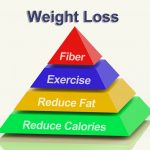Are you looking for an effective and natural way to improve your health? Fasting has been gaining popularity as a means of achieving better physical, mental, and spiritual well-being.
While the concept of abstaining from food may seem daunting at first, it can provide numerous benefits that go beyond just weight loss. Fasting can help improve insulin sensitivity, lower blood pressure, reduce inflammation, and even enhance brain function.
However, like any other health intervention, it’s important to weigh the potential risks against the benefits. In this article, we’ll explore the benefits and drawbacks of fasting for personal health so that you can make an informed decision about whether or not to incorporate it into your lifestyle.
Improved Insulin Sensitivity
 You’ll be glad to know that improving your insulin sensitivity is one of the major advantages of fasting. When you fast, your body’s metabolism switches from using glucose as its primary source of energy to burning stored fat instead. This shift in energy usage helps lower blood sugar levels and improve insulin sensitivity, which means that your cells are better able to use insulin to convert glucose into energy.
You’ll be glad to know that improving your insulin sensitivity is one of the major advantages of fasting. When you fast, your body’s metabolism switches from using glucose as its primary source of energy to burning stored fat instead. This shift in energy usage helps lower blood sugar levels and improve insulin sensitivity, which means that your cells are better able to use insulin to convert glucose into energy.
Fasting also promotes muscle preservation during weight loss, which is essential for maintaining a healthy metabolic rate. By reducing calorie intake through time-restricted feeding or other forms of fasting, you can help your body retain muscle mass while losing fat.
This is especially important for people who are trying to lose weight or manage their diabetes since it can help improve overall health and reduce the risk of developing chronic diseases.
Overall, fasting has many benefits for improving insulin sensitivity and promoting muscle preservation. However, it’s important to consult with a healthcare professional before starting any new diet or exercise routine, especially if you have underlying health conditions such as diabetes or heart disease. With proper guidance and support, incorporating fasting into your lifestyle could lead to improved health outcomes over time without sacrificing muscle mass or overall well-being.
Better Heart Health
Improving your heart health can be achieved through fasting, but it’s important to understand how this practice affects your body.
Fasting has been shown to have positive cardiovascular effects, such as lowering blood pressure and reducing inflammation in the body. However, it’s essential to note that these benefits are only seen when fasting is done correctly and under medical supervision.
Studies have shown that intermittent fasting regimens can lead to a decrease in total cholesterol levels and triglycerides, which are both risk factors for heart disease. Additionally, fasting has been linked to an improvement in endothelial function, which helps regulate blood flow and prevent plaque buildup in arteries.
These effects may ultimately reduce the risk of developing heart disease or experiencing a cardiac event. It’s crucial to keep in mind that while fasting can offer potential benefits for heart health, it may not be suitable for everyone.
Those with pre-existing medical conditions or taking certain medications should consult with their doctor before starting a fasting regimen. Additionally, proper hydration and nutrition during periods of fasting are critical to ensure overall health and wellbeing.
Mental Clarity and Focus
Enhancing mental clarity and focus can be achieved through the practice of fasting, provided it’s done correctly under medical supervision.
When you fast, your body goes into a state of ketosis where it burns fat for energy instead of glucose from carbohydrates. This process stimulates the production of ketones which provides fuel to your brain cells, leading to improved mental clarity and cognitive function.
In addition to the physiological benefits that fasting offers your brain, it also helps you develop mindfulness practices that enhance your overall well-being.
By abstaining from food, you become more aware of your body’s signals and learn to listen to what it needs. This self-awareness translates into other areas of your life, allowing you to better manage stress levels and cultivate emotional intelligence.
Fasting has also been shown to improve productivity by increasing concentration levels and reducing distractions caused by hunger pangs or cravings.
When you’re not constantly thinking about food or snacking on unhealthy options throughout the day, you have more time and energy to devote towards completing tasks efficiently.
Overall, incorporating fasting into your lifestyle can lead to improved mental clarity, mindfulness practices, and increased productivity levels when done correctly under medical supervision.
Potential Negative Side Effects
While some people may experience increased mental clarity and productivity levels through fasting, there are potential negative side effects that should be considered before incorporating it into your lifestyle.
It’s important to note that fasting can lead to dehydration, which can cause headaches, dizziness, and fatigue. Furthermore, if you have a medical condition such as diabetes or low blood pressure, fasting could exacerbate these conditions and lead to serious health complications.
Before deciding to fast as an alternative method for weight loss or personal health improvement, it’s crucial to seek medical supervision. Fasting without proper guidance can put you at risk of malnutrition and other health concerns.
Additionally, if you are pregnant or breastfeeding, it’s not recommended to fast due to the increased nutritional demands placed on the body during these times.
Overall, while fasting can offer numerous benefits for some individuals in terms of mental clarity and focus, it’s essential to weigh the potential negative side effects before jumping into this lifestyle choice.
Remember that every person’s body responds differently to different diets and forms of nutrition; what works for one person may not work for another. If you do decide to incorporate fasting into your life routine, make sure that you’re doing so under the guidance of a healthcare professional with knowledge about your specific needs and conditions.
Weighing the Pros and Cons
Deciding whether or not to fast can be a tough call, so let’s take a closer look at both the good and the bad.
On one hand, fasting has been shown to have potential health benefits such as weight loss, improved blood sugar control, and reduced inflammation. Additionally, many people find that fasting helps them develop healthier eating habits by promoting more mindful meal planning and reducing overall calorie intake.
On the other hand, there are also potential negative side effects of fasting that should be considered. Some individuals may experience dizziness, headaches, or fatigue when first starting a fasting regimen. Additionally, prolonged fasting can lead to nutrient deficiencies if proper care is not taken to ensure adequate vitamin and mineral intake through food or supplements.
Ultimately, whether or not you choose to incorporate fasting into your personal health routine is a decision that should be made in consultation with your healthcare provider and based on your individual needs and goals.
While there are certainly some potential risks associated with fasting, it may also offer noteworthy benefits for certain individuals seeking to improve their health outcomes. As with any lifestyle change, it’s important to weigh both the pros and cons before making a final decision.
What is the recommended duration of a fast for optimal health benefits?
Benefits of intermittent fasting include improved blood sugar control, weight loss, and reduced inflammation. However, prolonged fasting can lead to negative effects such as decreased muscle mass and metabolism.
It is generally recommended to practice intermittent fasting with periods of 12-16 hours per day or alternate-day fasting rather than longer periods of time without food.
Always consult with a healthcare professional before starting any new diet or fasting regimen to ensure it’s safe for your individual needs.
Can fasting lead to muscle loss or a decrease in physical performance?
Maintaining muscle mass and physical performance during fasting can be a concern, but it’s possible to avoid these issues with proper nutrition.
Make sure to consume enough protein and calories during your feeding periods, and consider incorporating strength training exercises into your routine.
It’s also important to choose an appropriate duration for your fast, as longer fasts may lead to muscle loss.
With the right approach, fasting can still provide numerous health benefits without sacrificing your hard-earned gains.
Are there any specific medical conditions that can be worsened by fasting?
Imagine you’re a gardener carefully tending to your plants. You know some plants require certain nutrients and water to thrive, while others may not need as much attention.
Fasting is similar; it can have different effects on people depending on their unique health conditions. For individuals with diabetes, fasting can pose significant risks as it can lead to dangerous drops in blood sugar levels. Similarly, those with high blood pressure may experience negative impacts from fasting as it can cause spikes in blood pressure due to the body’s stress response.
It’s important to consult with a healthcare professional before beginning any fasting regimen, especially if you have pre-existing medical conditions like diabetes or high blood pressure.
How does fasting affect the immune system and its ability to fight off infections?
When you fast, your immune response changes.
Studies have shown that short-term fasting (up to 48 hours) can increase the number of white blood cells, which are important for fighting infections.
However, prolonged fasting (more than 72 hours) can weaken the immune system and make it harder for your body to fight off infections.
This is because during long periods of fasting, your body starts breaking down muscle tissue for energy, which releases stress hormones that suppress the immune system.
It’s important to consult with a healthcare professional before embarking on any type of fast and to ensure that you’re not compromising your immune system’s ability to keep you healthy.
Are there any long-term effects of fasting on overall health and well-being?
Oh, the joys of intermittent fasting! Who needs long-term effects on overall health and well-being when you’ve got a slim waistline and improved insulin sensitivity?
But in all seriousness, while intermittent fasting has shown some positive effects on weight loss and metabolic health, it’s important to consider the potential drawbacks as well. Compared to calorie restriction, which involves reducing overall daily caloric intake, fasting can lead to more severe hunger pangs and potentially disrupt regular eating patterns.
Furthermore, some studies suggest that prolonged periods of fasting may lead to muscle loss and decreased bone density. As with any dietary approach, it’s crucial to weigh the pros and cons before diving in headfirst.
Overall, the benefits and drawbacks of fasting for personal health are important to consider before embarking on this practice.
While improved insulin sensitivity, better heart health, and mental clarity and focus are potential benefits of fasting, there are also negative side effects to be aware of such as dehydration, fatigue, and decreased muscle mass.
In weighing the pros and cons of fasting for personal health, it’s ultimately up to you to decide if this practice aligns with your goals and lifestyle.
As the saying goes, “Different strokes for different folks.” It may be worth experimenting with different forms of fasting or consulting with a healthcare professional before making any drastic changes to your diet.
Remember that every body is unique and what works for one person may not work for another.









